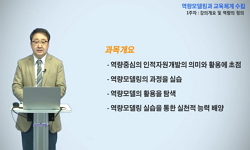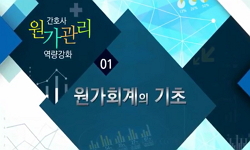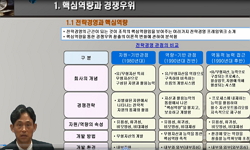Following the South Korean foreign exchange crisis of 1997, there was a growing consensus that encouraged government reforms in promoting a more competitive workforce, based on the concept of the New Public Management system. The competency management...
http://chineseinput.net/에서 pinyin(병음)방식으로 중국어를 변환할 수 있습니다.
변환된 중국어를 복사하여 사용하시면 됩니다.
- 中文 을 입력하시려면 zhongwen을 입력하시고 space를누르시면됩니다.
- 北京 을 입력하시려면 beijing을 입력하시고 space를 누르시면 됩니다.

A Competency ?based Training Program Adopted by the Korean Civil Service in Support of a Personnel Management Reform Strategy = A Competency ?based Training Program Adopted by the Korean Civil Service in Support of a Personnel Management Reform Strategy
한글로보기https://www.riss.kr/link?id=A100728124
- 저자
- 발행기관
- 학술지명
- 권호사항
-
발행연도
2015
-
작성언어
-
- 주제어
-
KDC
300
-
등재정보
KCI등재
-
자료형태
학술저널
- 발행기관 URL
-
수록면
25-48(24쪽)
- 제공처
-
0
상세조회 -
0
다운로드
부가정보
다국어 초록 (Multilingual Abstract)
Following the South Korean foreign exchange crisis of 1997, there was a growing consensus that encouraged government reforms in promoting a more competitive workforce, based on the concept of the New Public Management system. The competency management system in the Korean national government was initiated in this circumstance. It was designed to support the processes within workforce planning, that included: selection; promotion; education and training; and with career progression. In its adoption in 2006, the Korean Central Officials Training Institute used this competency management program for the training and further development of its own workforce. In this process, the MOPAS and the COTI conducted as roles of the AC and the DC respectively for the competency-based training programs. Korea``s future plan is to broaden HRM areas encompassed by competency management and to increase the number of civil servants involved in competency management. Until now, the Korean government evaluated competency management as better than the other methods of personnel management in terms of reliability, validity, and compliance. Furthermore, it is worth mentioning the AC and DC as a new practice concerning competency management in the Korean experience. The simulations and facilitators are the most essential factors for the Development Center. The numbers of these have not been enough since the COTI adopted the competency-based training programs. Therefore, how the COTI manages to develop more suitable simulations and to train more professional facilitators must be another challenge for the future development on this subject
동일학술지(권/호) 다른 논문
-
- 한국인사행정학회
- 권찬호 ( Chan Ho Kwon )
- 2015
- KCI등재
-
변혁적 리더십과 진성 리더십이 조직몰입에 미치는 영향: 심리적 자본의 매개효과를 중심으로
- 한국인사행정학회
- 한봉주 ( Bong Ju Han )
- 2015
- KCI등재
-
한국 공무원의 공직선택 동기 연구: 직종별 하위직 공무원들의 인식 비교
- 한국인사행정학회
- 박천오 ( Chun Oh Park )
- 2015
- KCI등재
-
- 한국인사행정학회
- 최도림 ( Do Lim Choi )
- 2015
- KCI등재




 스콜라
스콜라





